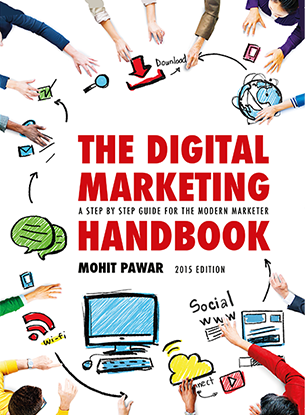 There are four types of students based on their career aspirations;
There are four types of students based on their career aspirations;
1. Those who want to get a job after finishing college
2. Those who want to become an entrepreneur
3. Those who want to pursue higher education
4. And those who are not sure what they want to do
You decide for yourself which type you are. That said there is a lot to gain if you choose to build a startup as a student.
Why?
Building a startup is a great way to learn things, power your resume. You learn more about negotiation, sales, and technology building a startup then reading any book.
So whether you want to get a job, pursue higher studies or become an entreprenur this will serve you well.
If you are still not sure about your purpose in life, it will help you find it.
Simple to understand but challenging to implement; or that is what you think?
How?
Whenever I talk to people who are interested in building a startup, the common excuses that come across are; lack of time, ideas or motivation.
It is simple to find time. Finding one idea that you want to work on is slightly more difficult, but workable. Motivation is the key; better if you are motivated from within. Reason for lack of motivation can also be thinking driven by scarcity of time and ideas — once you have both chances are that you will become motivated to move ahead.
Fifteen Tips on How to Do It?
15. Track time: It can be simply noting on a sheet of paper where and how you spend time in a 24 hour window — include everything — time for food, gossip, class, sports, web (leisure and work), including everything. Do this tracking for a weekday and also for weekend.
Then sit down and take a hard look at this sheet and notice what sucks your time most. Minimize these activities and you will find time which you never thought was available.
14. Less digital time: This is obvious without even a time track. TV, web, mobile all combined make one of the biggest time kills of 21st century. Many people think of web surfing as a productive activity; which is not the case always. If you are spending time online with a purpose (and with a start and end time) then it is fine otherwise avoid it.
13. Find time in solace: Early morning or late nights depending on what suits you best. 10-15 minutes a day should be enough. This should be your time to think, reflect and plan.
12. Think less and do more: For those who day dream a lot, do not think much beyond your thinking time. Once you have decided what you want to do just focus on doing.
11. Focus: You may have 20 ideas or you may have none (in this case find one). Start with one idea that you think is worth your time and effort.
10. Do not go after glory: Focus on doing things. Glory will come to you if you are able to build something remarkable.
9. Find a tag team partner: Team up with a friend, better if the friend is a fellow student. It will be easier to collaborate then. Find somebody with complimentary abilities.
8. Volunteer: Contribute to open source projects if you are a technology student. Participate in the entrepreneurship development cell (EDC) of your institution. If your institution does not have one, create it. Invite entrepreneurs to your campus as part of EDC. This will expose you to new ideas and also motivate you.
7. Participate, in business plans competitions at regional, national and/or global level depending on your resources and inclination. Ask if your institution can fund your participation? “Deserve before you desire” applies here.
6. Startup in place of internship: Build your startup during the time of your internship. Share this with your career resource team; guess they will be happy with one less internship opportunity to find. If you some learning then intern with a startup that your admire during one semester and build your own startup during next one.
5. Read: Books like “Bootstrap Bible” by Seth Godin and “The Four steps to the Epiphany” by Steven Blank.
4. Apply to entrepreneurship accelerators: YCombinator and TechStars (US); The Morpheus (India); or at least explore what are the companies they are helping build – good for idea generation and broadening your horizons.
3. Right Areas to consider: Aim to solve big problems in the areas you are passionate about. If you want to rehearse then build the local version of something that has worked on global level.
2. Always be at it: Do it in the evening, do it in the morning and do it during holidays.
1. Find a mentor: Your mentor can be outside or on your campus; somebody who has been there and done that. Ask for help and also offer to help.
Guess you are ready now. For any discussion write to me.
Ideas on what has worked for you or what you plan to do, please share in comments.
If you liked this post, you should follow me.



Great read!
I believe, student age is the best time to make a new start. Going for a startup after completing your master’s or 2-3 years’ job, you have already lost time.
If some one spends those 2 years dealing with business, he has more time to learn and gain experience.
“Success never comes without failures†and if anyone wants to be an entrepreneur he/she should start it at the right time.
Puneet, glad that it resonated with you. Having started as a teenage entrepreneur, I know it certainly helps. I am sure great times await you as you have also started early.
Real good read…..and whatever few things I have tried somewhere or the other……I can say it works. However, I would like to know more about the How part of Point 8 and yes, I am very much confused about point 4.
Cool Jigyasa.
HOW PART OF #8
For an entrepreneur who is already on “the path” – volunteering and participation – in community can be done in following ways;
– An entrepreneur running a brand consulting firm, can call brands (stakeholders) and see if they are willing to take some FREE help – in form of better ideas than what they are using currently. Doing this you also create a prospect pipeline.
– To be seen, contribute and learn: blog, go to industry events (not too many, 3-12 in a year)- see it as a mean to an end and not the end itself. See if you can go as a speaker to one/couple of these.
– See if you can – pick the brain – of some of the people you admire in form of – a chat over coffee; or by offering to help and making a connection through a reference.
DETAILS ON #4
Not every startup needs outside capital and not all startups appear exciting to investors (in terms of return on invested capital, coolness/novelty of the project, great team..)
But if a startup is stalled because of not having resources – inspite of having superb potential, team etc. then it makes sense of reach out to one of the accelerators.. true to their name (they can accelerate success..) by making connections and providing some funding (Ycombinator averages around $18,000/-) not as big as a series A by venture capitalists/firms – but enough to get you started.. angels also invest but may not provide as big a network support as one of the accelerators..
There have been instances where companies found enough visibility to receive ready funding by VCs. Recently (Jan 2011) Yuri Milner (investor in Facebook, Zynga, Groupon etc…) /SV Angel offered a blanket investment each of $150,000 to every Ycombinator startup. That speaks of the trust an investor like Yuri Milner has reposed in the quality of Ycombinator startups…
Hope it helps.
Moreover, in most of the cases, as we grow older the responsiblities, commitments, and need of the money also grow. And, again in most of the cases, these barriers keep you busy enough to think about your true dreams. Definitely, there exists so many exceptions and we will have many more people setting examples, but without argument you should not miss Early Bird advantage. So, if you have a dream…please Go Go Go…ASAP 🙂
True Prateek, most of the students and many young professionals lead a low maintenance lifestyle – conducive to starting things and going after one’s dreams. Looks like “Poke The Box” is working its magic 🙂
Pingback: 100 things I learnt as an entrepreneur and what you can learn from it. | Mohit Pawar . com
Pingback: 17 businesses you can start with little or no money | Mohit Pawar . com
Pingback: Why I never became the monk who sold his Ferrari? | Mohit Pawar . com
Pingback: Start Small. Aim Big : Find the Courage to Start Even When You Do Not Have Any Experience. | Mohit Pawar . com
Pingback: How To Succeed Without Losing Your Health - Mohit Pawar.com